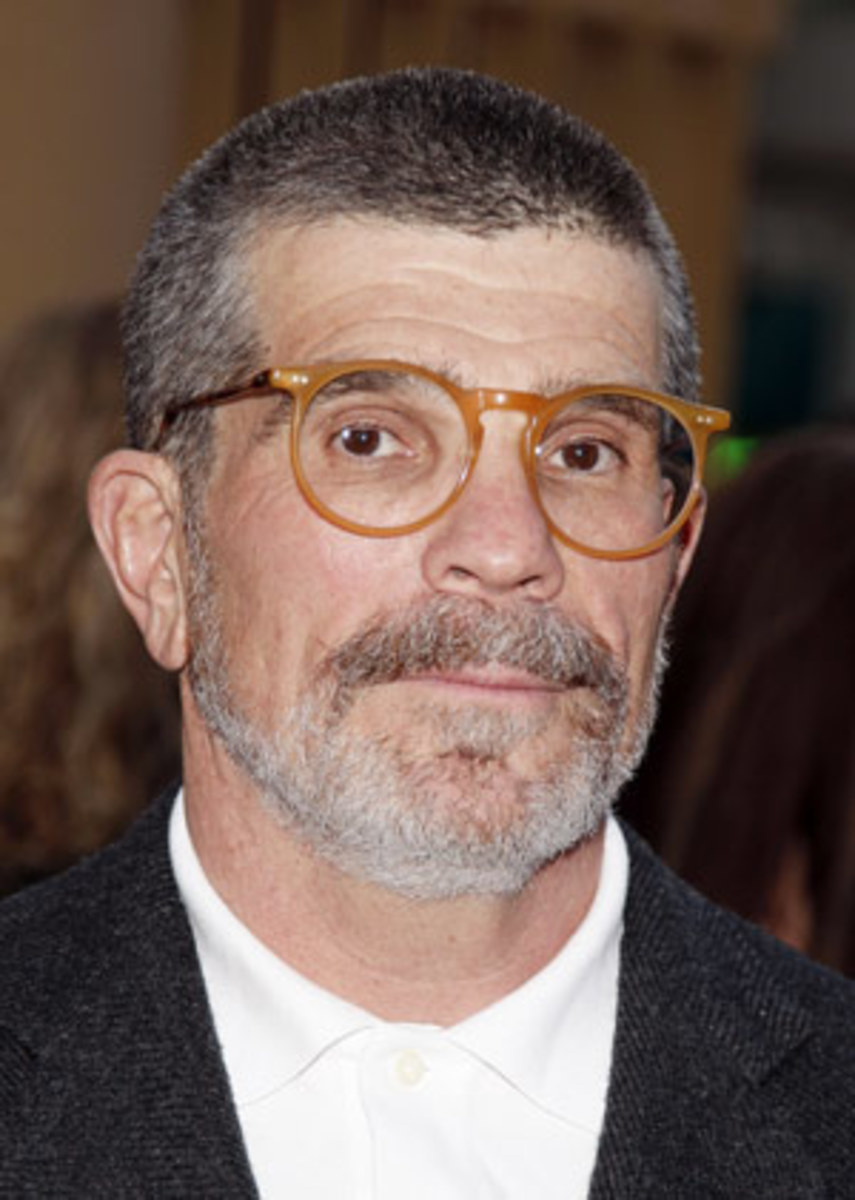Q&A with film director David Mamet


David Mamet has made a career writing about masculine milieus. So it was probably inevitable that he'd eventually fix his gaze on mixed martial arts. Particularly since he is a devoted jiu-jitsu student. In anticipation of his latest film, Red Belt, Mamet discussed all things manly with SI.com
SI.com: You're obviously a big jiu-jitsu guy, but how big of a leap was it to go from being a practitioner to actually making a movie about the sport?
Mamet: Well, I got to live in the world. That's what got me enthralled. My teacher got his black belt from a Machado (brother), so I got my chance to train with these guys. Then, everyone in the academy has lunch together so I got to sit down with Machados, Rickson Gracie, (Ray) "Boom Boom" Mancini, cops, Navy Seals. I got interested in the inter-pollination between this and the world of guys who were professional fighters.
SI.com: Had this been the case with other projects? Had you worked in a Long Island boiler room (Glengarry Glen Ross) or worked as a con man (House of Games), knowing the culture so intimately?
Mamet: Actually I worked in a boiler room in Chicago! I was fortunate enough to have a rambling youth. In Chicago I was driving a cab and playing poker for about 12 hours a day with a bunch of crooks, and that became "American Buffalo." These secret worlds -- I don't know if it's a Chicago thing or a guy thing, or what -- but they really fascinate me.
SI.com: What is it about jiu-jitsu that has seduced you?
Mamet: From having been involved in other martial arts -- I wrestled in high school, I boxed, I did some kung fu -- it seems that jiu-jitsu is the most applicable to actual physical confrontation. And philosophically, it's the most appealing, especially as one gets older, because it's all about conservation of energy.
SI.com: To what extent are you a fan of professional MMA, the UFC and other organizations?
Mamet: I'm not immersed in that world. I enjoy the UFC a lot. What fascinated me was the difference between what happens in the academy and in the fight world as entertainment. The movie, to me, is sort of a cross-pollination between an American fight film and a (Akira) Kurosawa samurai film, but you could also say it's a parable about Hollywood. It's about the artist in the big, bad world.
SI.com: What about the whiff of corruption in the movie? Is that dramatic license or something you've sensed when you see the sport professionally?
Mamet: No, I don't sniff it out. It looks straight up and down to me. It's really a view of the world, not a view of MMA. One character says, "Any time you have two guys in the ring, it has to be fixed because there's money involved." I don't think that's true. But I do think any time you have two guys in the ring and there's money involved, there's a great temptation for the fight to be fixed.
SI.com: Mixed martial arts has obviously become increasingly international, and your cast is very diverse. Chiwetel Ejiofor, a Nigerian Brit, plays the lead. Alice Braga, a Brazilian, plays his wife. Was that intentional, to mirror MMA?
SI.com: Well I love the Brazilians. The way they roll is different from anyone else. It's just different. And they're extraordinarily philosophical. The essence of jiu-jitsu is philosophy. I knew I had to have Brazilians and I had to have actual Brazilians playing them.
SI.com: And the lead?
Mamet: I'll tell you about Chiwetel: we have the same agent. A couple of years ago, I didn't know his world. I ran into my agent eating dinner with Chiwetel and he says, "I want you to meet my client." He says this funny name, I didn't hear it in time, and says, "He's the greatest actor in the world." I look at this skinny kid and say, "Yeah." I've seen him in Dirty, Pretty Things. Great movie." Then my agent sends me Kinky Boots. I say, "Wait a second, if this is the same guy doing a drag queen in Kinky Boots, (who was a Nigerian doctor in Dirty, Pretty Things), he IS the greatest actor in the world!"
SI.com:Ricky Jay, Joe Mantegna, all the Mamet regulars had fun with this subculture?
Mamet: We just had a ball.
SI.com: Want to tick off some fighters you admire? Are you an Anderson Silva guy?
Mamet: You know, the younger guys, I admire any of these guys ... Randy Couture -- and I think he's a hell of an actor -- won the heavyweight title of the UFC with his arm broken.
SI.com: Your worst injury?
Mamet: You don't get injured that bad because the difference between the grappling forms and the striking forms is you get to tap out.
SI.com: Sure, but a guy gets you in a knee lock and you'll feel that.
Mamet: Oh, I've been bruised up a little. Hyperextended now and then. And, once in a while, you hear the birdies singing.
SI.com: If you had to rank, what's the testosterone quotient in an MMA gym compared to other subcultures you've visited?
Mamet: Oh, this is quiet. I would compare this to a yoga studio. It's taxing you physically but you're trying to teach yourself not to let it tax you physically.
SI.com: You speak in these epigrams in real life too!
Mamet: No, that's what they say in the studios. I was talking to Rickson and he said about jiu-jitsu: "Once you discover what the essence of jiu-jitsu is, you'd rather die than live a moment of your life without it."
